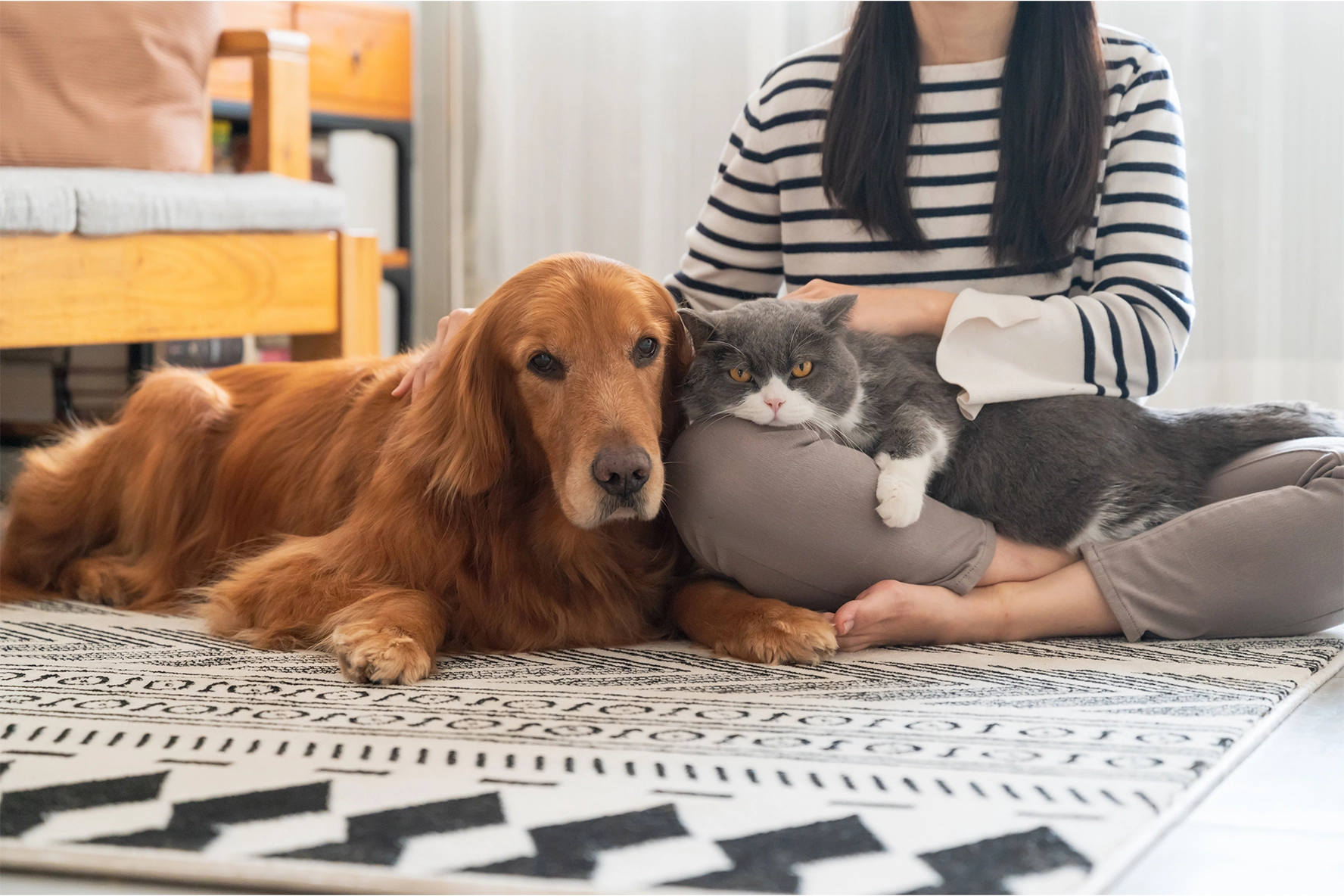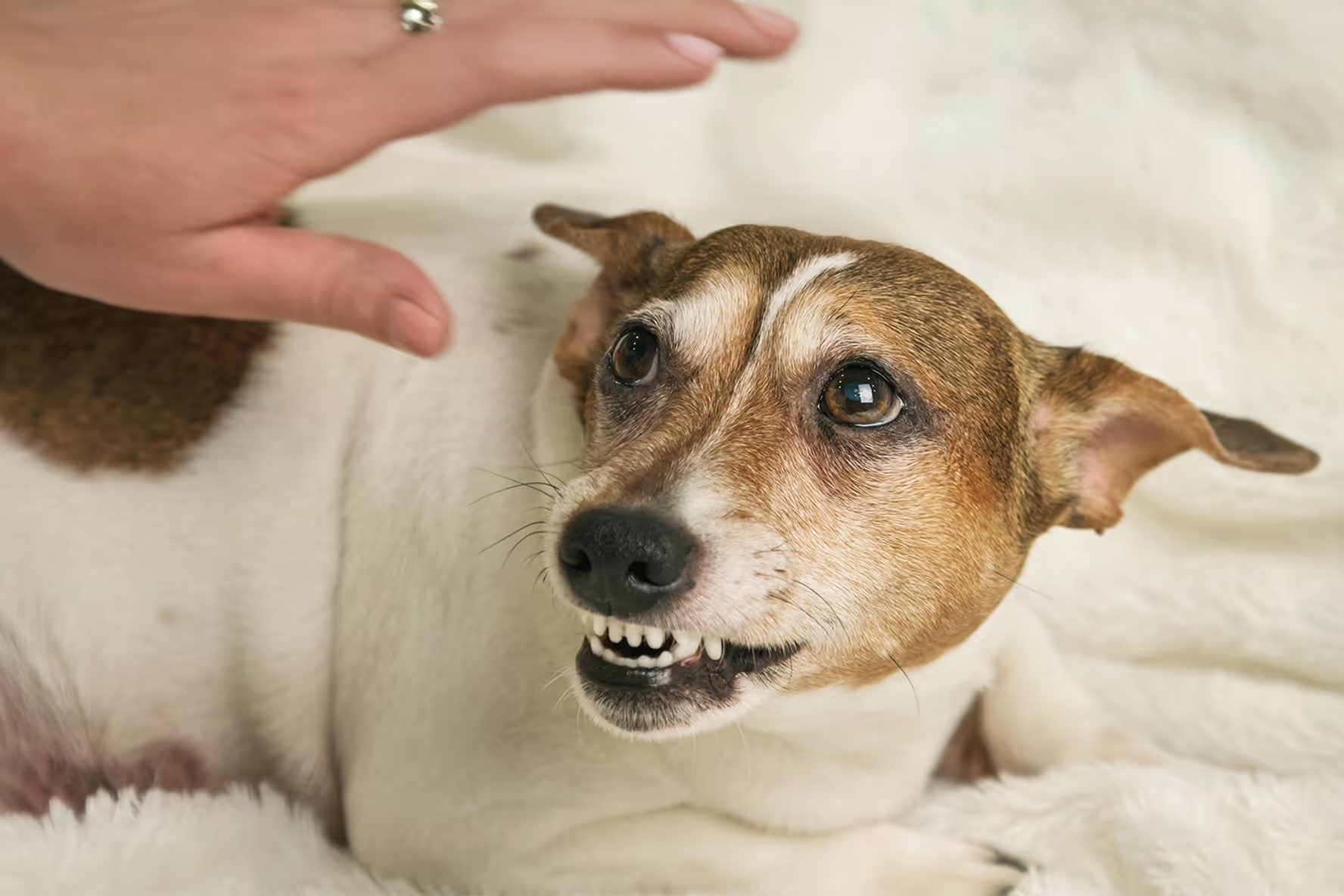
It’s never going to be easy to lose a pet. They become long-standing members of our families. They are fixtures in our homes. They are our best friends, the presence that you know will always be there.
When we lose a pet, we have different ways to process the loss. We know what happened and how to take the steps to continue on afterward. We know that we have to process our grief.
But what about the other pets in our homes?
Losing a member of the family for them can be hard to understand, whether it’s a temporary loss of a child moving out or the final loss of a fellow pet. They have no way to understand where their family has gone.
So how can you help a dog cope with their grief after losing another furry family member.
Look for signs of grief
Like people, dogs process and show grief differently based on their personalities. Although your dog’s personality will affect the way their grief is shown, there are a few common signs.
Dogs that are grieving may experience a loss of appetite, lethargy or depression, lack the ability to sleep or sleep more than normal, separation anxiety, start vocalizing—like howling, whimpering, or whining, not necessarily barking—and may get behavioral issues, and having accidents in the house.
While these are ways that grief presents itself in dogs, and you may be looking for these signs because of a loss, there is a chance that many of these symptoms can be signs of physical ailments and it can be worth seeing your vet to make sure that the symptoms are due to grief.
Try to maintain some sense of normalcy
It can be hard to continue on with your normal routine when you have experienced a loss of a pet, especially of another dog, but keeping a routine can make the adjustment easier on your other dogs or pets.
While your dog may normally love a new and exciting thing, having a routine when something big, and upsetting—like losing a furry sibling—happens, routines can help them adjust quicker to the new way of handling things. Knowing what comes next as the day progresses can help your pet feel more secure and less lost.
Look after physical needs
It’s very important for your dog to be able to move on from grieving. They will have a harder time managing and controlling their grief if they are not taking care of their physical health, the same way that a person who is grieving may feel it for longer if they choose not to eat during their grieving period.
Taking care of your pet’s physical needs can help them process their grief more efficiently and prevent long-term health issues from arising due to the grief.
There are easy ways to make sure your pet’s physical health is being taken care of. Make sure that they are eating—if your pet shows a lack of appetite it can help to feed them out of your hand, or to move their bowl to your table’s height to create more intrigue in the food, or add water to dry food to make the smell stronger and more exciting.
If your dog is having a hard time getting rest, try inviting them onto the bed to sleep with you. This can provide more comfort and security, allowing them to feel safe falling asleep.
If your dog is lethargic and doesn’t have interest in their normal forms of exercise, try taking them somewhere different for a new activity to inspire their energy to return.
Be more affectionate
The same way that a person would want someone to hold them when they are upset, your dog may be the same way.
Being more affectionate to your dog can mean many different things: holding them, petting them more often, talking to them and making eye contact regularly.
It’s important to be mindful of when your dog is looking for more attention and when you are just giving it. Providing extra attention when your dog is not reaching out for you may lead to more clingy behavior in the future, or it could risk overextending the grieving period for your pet.
Giving them attention when they ask for it can be very helpful in your dog’s sense of security and will strengthen your bond in the long run.
Try new activities
While a routine may be very important for some dogs, having a new environment, activity, or experience may be more important for others. It’s best to pay attention to what your dog responds to more. If your dog can’t find the energy to get up and go about the normal routine, it may be better to find new activities, games, toys, and locations to try and re-establish their normal self.
New activities don’t have to be complicated, it can be something as simple as taking them for a walk in a new area or as intense as bringing in a new training regimen.
For some dogs, activities that require a lot of mental focus can help them move through their grief more quickly.
Acknowledge good behavior and ignore bad
Acts of rebellion, whether small or large, is another expression of grief. Some dogs will have behavioral issues that come along with their loss, which could be anything from making noise when you wouldn’t like them to, to destroying belongings or furniture.
It can be very difficult to ignore the bad behavior when you know your dog is well trained and knows better, but it’s important that for a little while you don’t address them negatively. They are experiencing emotions that they don’t fully comprehend and they don’t know how to stop—in the same way people may experience anger when they are grieving.
The best thing that you can do for these dogs is reward them when they aren’t engaging in the negative behaviors, and not address the times that they are. At least for a little while. If the bad behavior starts to seem more like a habit than a response, that’s when it will be time to start training away from those activities. For many well-trained dogs, the bad behavior is only temporary.
Entertain your dog while you’re away from home
We can’t always stop the world around us to be able to take care of our pet’s needs, even if that’s something that a lot of pet parents wish that they could do. But when you aren’t at home, whether you have to be at work or run to the store, it can help your dog to have something to do.
The most common activity that people use to entertain their dogs while they’re away is a scavenger hunt. Hide treats around your home, and when you get ready to leave, show your pet that there are treats hidden. They will spend the entire time looking, smelling and hunting down the hidden treats until they don’t even realize that they’ve gotten them all, and you come home.
There are many other activities that can entertain your dog when you are not home that you can find with a quick search.
Highlight activities that make your dog happy
Thinking about it from a person’s perspective, it can feel a bit patronizing to take your grieving dog to do the things that you know make them happy to try and avoid the sadness. But dogs don’t have the same background processing that we do.
Prioritizing bringing joy to your dog is very helpful in moving them through their grieving phase.
If your dog loves to play fetch, try to prioritize spending time every day on the game. If your dog loves to be social and be around people, invite some friends who are social with the dog to come over and spend some time with them. If your dog is social with other animals, try taking them to a dog park to play with other dogs and get their mind off the loss at home.
Take time before adding a new pet to the family
It’s important that both you and your dog finish grieving before a new furry family member is brought in. It can be hard on everyone, including the new pet, if the home hasn’t come to peace with the loss of the earlier pet.
If your dog is still grieving when a new pet is introduced, it may be difficult to develop a healthy bond between the new pet and the grieving dog. And it can be hard for the new pet to try to adjust to a home that is looking for a personality that is not theirs.
Consider medical help if grieving doesn’t get easier
If your dog doesn’t seem to be getting over their grief, or they seem to be falling deeper into a depression, you may need to talk to your vet to make sure there are no underlying health issues causing the depression, or that are being caused by the depression.
Take precautions and pay attention to your pet. They may be asking for help in the only way they know how.


